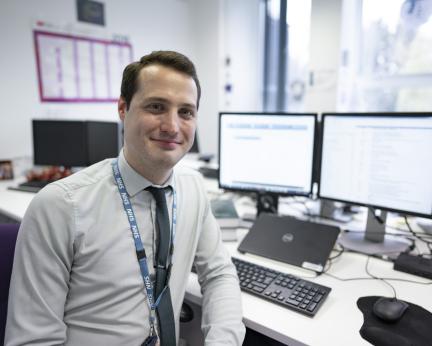Coding is often seen as data entry, but it’s really about creating data. As a clinical coder you have the challenge of taking information about a patient’s stay in hospital, often from different sources, and creating a summary, which is then translated into codes. It’s like an abridged version of a story, only in a format that allows the story to be analysed and manipulated in many ways for different purposes.
As the NHS continues to move towards a digital future, the role of the clinical coder will need to adapt, which is very exciting.
I spend most of my days analysing coded data to ensure it is high quality and fit for purpose. It helps to make sure that hospitals receive the funding they need, so it’s vital we get it right.
Some days I undertake routine monitoring looking for any inaccuracies in the data before correcting them. I may then carry out more in depth clinical coding audits which can help identify the root causes. I document my findings and make recommendations of necessary actions to address problems.
Some errors are due to mistakes made by clinical coders so it’s important I support their development to see how things can be improved.
Others might come from data submitted by clinicians on hospital wards, in which case I provide a presentation or teaching session with clinical colleagues to try and sort those things out. I love that part of my job because I get to engage with different people across the hospitals.





